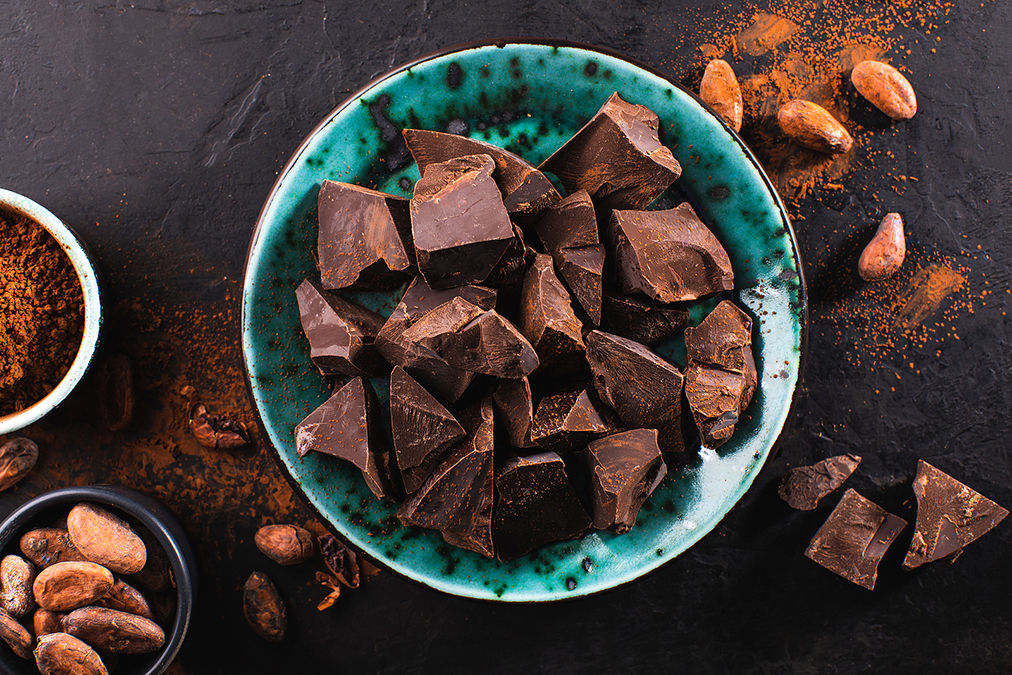 Most diet recommendations for managing modern diseases force you to eat food that you probably don’t like so much, right?
Most diet recommendations for managing modern diseases force you to eat food that you probably don’t like so much, right?
That’s why a new study in the Journal of Nutritional Biochemistry should make you happy, because it proves that consuming a specific yummy treat cuts down on fat in the liver and therefore reverses NAFLD.
And we’re not talking about a small cut in liver fat—consuming this treat daily can slash 22% of your liver fat.
Dark chocolate has been scientifically proven to benefit people with diabetes, heart disease, and those who are at risk of developing serious obesity-related conditions. Researchers believe that this results from the polyphenols found in cocoa.
Since nonalcoholic fatty liver disease (NAFLD) is usually obesity-related, or at least results from consuming lots of fat, a group of researchers from Pennsylvania State University decided to investigate whether cocoa could ameliorate NAFLD.
They did not want to conduct the study on humans, because a study in which people are deliberately fed a very high-fat diet would be prohibited on ethical grounds.
Therefore, they performed the study on obese mice on a high-fat diet, with the mice divided into a group that received cocoa supplementation and another group that did not.
The cocoa group received 80 milligrams per gram of body weight of cocoa powder for 10 weeks, after which the researchers examined their livers for damage and collected a range of other health indicators.
Compared with the mice on the high-fat diet that did not receive cocoa, the cocoa group exhibited:
1. 75% less damage to DNA in mitochondria (the parts of cells that produce energy).
2. 57% fewer lipid peroxides (fats that are damaged and made harmful by oxidation).
3. 28% fewer hepatic triacylglycerols (densely packed fats stored in the liver).
4. 22% less body weight gain.
They also found that the enzymes responsible for digesting fats and carbohydrates were inhibited in the cocoa group, a possible explanation for the healthier fat and body weight profiles.
If fats and carbohydrates are not digested, they pass straight through the digestive system and are excreted instead of stored, yielding livers without tons of fat storage.

 Overcoming IBD
Overcoming IBD Multiple Sclerosis
Multiple Sclerosis Banishing Bronchitis
Banishing Bronchitis Gum Disease Gone
Gum Disease Gone Overcoming Onychomycosis
Overcoming Onychomycosis Neuropathy No More
Neuropathy No More The Prostate Protocol
The Prostate Protocol Brain Booster
Brain Booster
 Ironbound
Ironbound
 Solution for Shingles
Solution for Shingles
 The Bone Density Solution
The Bone Density Solution
 The Ultimate Healing Protocol
The Ultimate Healing Protocol
 The Parkinson's Protocol
The Parkinson's Protocol
 The Chronic Kidney Disease Solution
The Chronic Kidney Disease Solution
 Overthrowing Anxiety
Overthrowing Anxiety The Fatty Liver Solution
The Fatty Liver Solution The Hypothyroidism Solution
The Hypothyroidism Solution
 The End of Gout
The End of Gout The Blood Pressure Program
The Blood Pressure Program
 The Oxigized Cholesterol Strategy
The Oxigized Cholesterol Strategy
 Stop Snoring And Sleep Apnea Program
Stop Snoring And Sleep Apnea Program
 The Arthritis Strategy
The Arthritis Strategy The Vertigo & Dizziness Program
The Vertigo & Dizziness Program The 3-Step Diabetes Strategy
The 3-Step Diabetes Strategy Hemorrhoids Healing Protocol
Hemorrhoids Healing Protocol The Erectile Dysfunction Master
The Erectile Dysfunction Master Weight Loss Breeze
Weight Loss Breeze The IBS Program
The IBS Program The Insomnia Program
The Insomnia Program The Migraine and Headache Program
The Migraine and Headache Program The Neck Pain Solution
The Neck Pain Solution The Menopause Solution
The Menopause Solution The Ejaculation Master
The Ejaculation Master The TMJ Solution
The TMJ Solution The Acid Reflux Solution
The Acid Reflux Solution The Fibromyalgia Solution
The Fibromyalgia Solution The Psoriasis Strategy
The Psoriasis Strategy